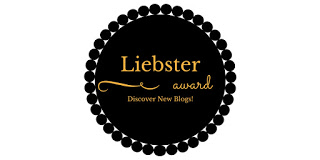This article is the sixth in the series: Writing a Chapter Book.
Try these tips:
Spend time with kids who are
the age of the characters and listen to how they speak. Reflect their language
in your writing. A rich, lively language with expanded vocabulary makes the
storytelling seem real. Action verbs depict a specific image. The boy ran is
not as specific as the boy dashed. Dashed indicates a faster pace than ran;
thus, more specific. Create an image with words so the reader can better
imagine the action. Sensory language—using see, hear, touch, taste, and smell—create
vivid scenes that take the reader along on the journey as though s/he is in the
midst of the action.
Capture the interest of the
reader at the beginning of the story with immediate action, where something
important is happening to the main character. Hook the reader by focusing on
the protagonist. Begin with a scene that mirrors the overall conflict in some
way. If the story involves a ghost, you might choose to open with a scene in
which the protagonist sees a ghost or finds something that make the character
suspect a ghost is creating havoc. Conflict
should be evident from the beginning. Avoid a long build up with backstory that
will have readers moaning booooorrrring.
Call for submissions for young writers:
Parallel Ink is your friendly, neighborhood
e-magazine publishing writing by students around the world in grades 6-12*.
Aside from super-imaginative sci-fi serials and epic fantasy tales, we welcome
poignant poetry, quirky rants/personal essays, discarded love letters, and
offbeat text exchanges with open arms (among many other countless gems of
literature teenagers write). Anything goes if it's well-written, captivating,
and ready for sending out into the world wide web!
Submission guidelines at http://parallel-ink.webs.com/
Call
for submissions for adult writers:
MUSE Literary Journal Seeks Poetry and
Creative Nonfiction. Send up to 3 poems
(all styles welcome) or one piece of creative nonfiction (1500 word maximum) to
be considered for Spring 2014 issue. Most recent edition includes work from new
and established writers, including BZ Niditch, Donna Hilbert, Allison
Whittenberg, Lloyd Aquino, Robert Cooperman, Irving Gaeta, Michael H. Winn,
Candace Mayo, and Tina Holden Burroughs. Previously unpublished work only;
simultaneous submissions okay if notified upon acceptance elsewhere. Include
separate cover letter with full contact information, 5-7 line bio, and SASE.
Mail to: MUSE Literary Journal, Riverside City College, 4800 Magnolia
Avenue, Riverside, CA, 92506.
Submission deadline: February 15, 2014
Check out more contests on my
blog: http://nancykellyallen.blogspot.com/

Thanks for these good reminders, Nancy. I am enjoying this series of posts. Chapter books are next on my list to try writing.
ReplyDelete